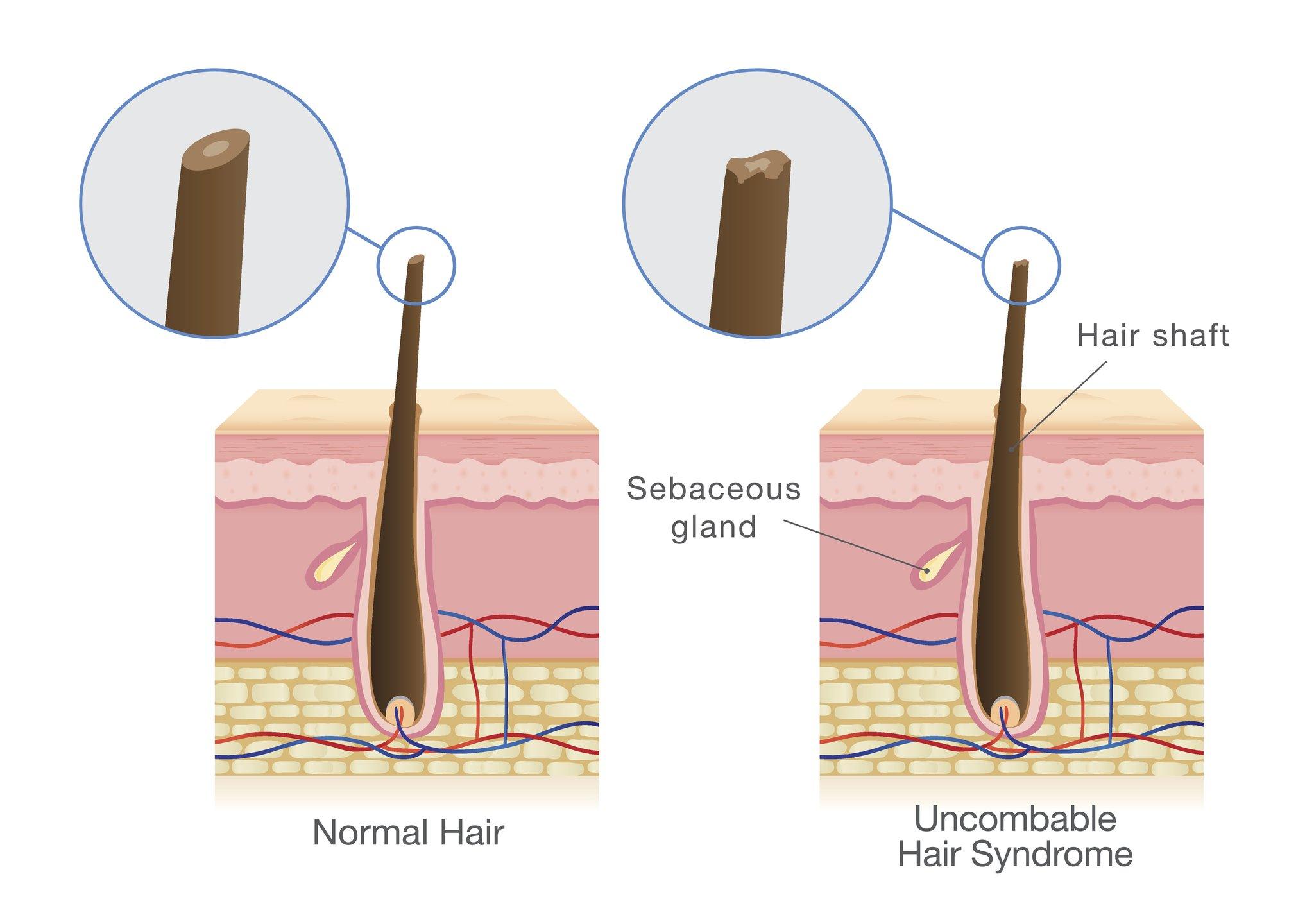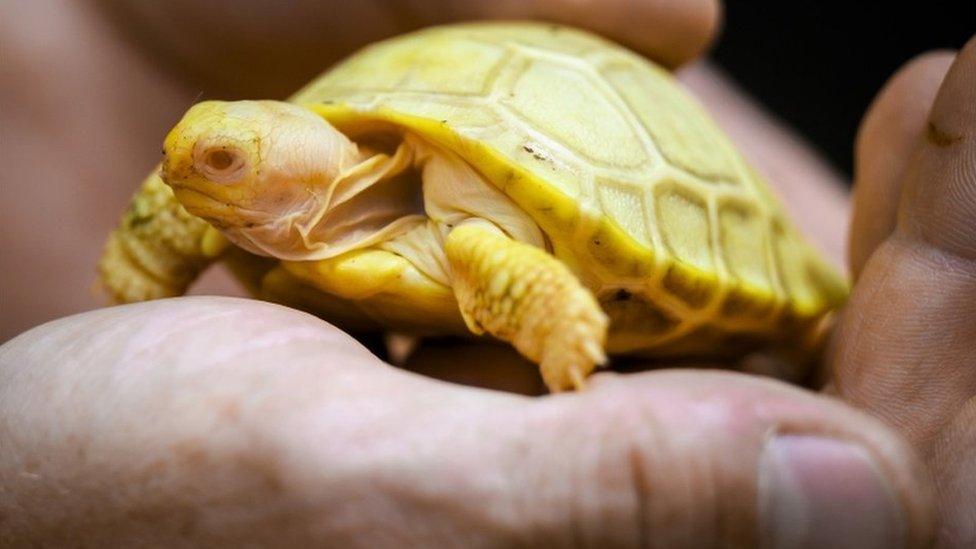Scientists find cause of 'uncombable hair syndrome'
- Published
- comments

Albert Einstein
Scientists reckon they've found the cause of Albert Einstein's uncombable hair!
The famous physicist is thought to have had an iconic frizzy hairdo thanks to a really rare condition called 'uncombable hair syndrome'.
People with it tend to have dry, wiry, light-coloured hair that stands out from the scalp and can't be combed flat.
Scientists have been looking at the condition since the 1970s but now they know what causes it.

Scientists first started publishing articles about Uncombable hair syndrome in the 1970s
The scientific study
Researchers had a theory that uncombable hair syndrome is caused by a genetic mutation, a change in the DNA sequence of an organism.
They analysed the genes of 107 people who were suspected to have the syndrome from around the world over the past decade.
Every cell in our bodies contain genes. Genes carry the information that makes up our traits and characteristics which are passed down from our parents.
For example if you have straight or curly or hair, if you are tall or short.
They are so tiny you can't see them and each cell in the human body contains about 25,000 to 35,000 genes.
They're made up of sequences of DNA.
If these sequences are changed for any reason, this can cause a genetic mutation.
Sometimes these genetic mutations don't really make much difference, but other times it can cause disorders or illnesses.
By looking at all of these different genes, they were able to confirm that uncombable hair syndrome is caused by mutations in three genes, which tell the hair fibres how to grow.
It's also confirmed that this is a recessive genetic characteristic - this means that both parents must be carriers of the mutated gene, even if they don't have the condition themselves.

The difference between the hair shaft with and without unbombable hair syndrome
Why is this good?
By confirming where the genetic mutations are that cause the syndrome, it opens up lots of new doors for scientific research.
Scientists can now look further into the role played by our genes in controlling our hair's shape and appearance.
There will also be benefits for people living with it.
Because it's such a rare condition, genetic testing may be able to be used to help with a diagnosis.
- Published21 March 2024

- Published9 April 2013

- Published9 June 2022

